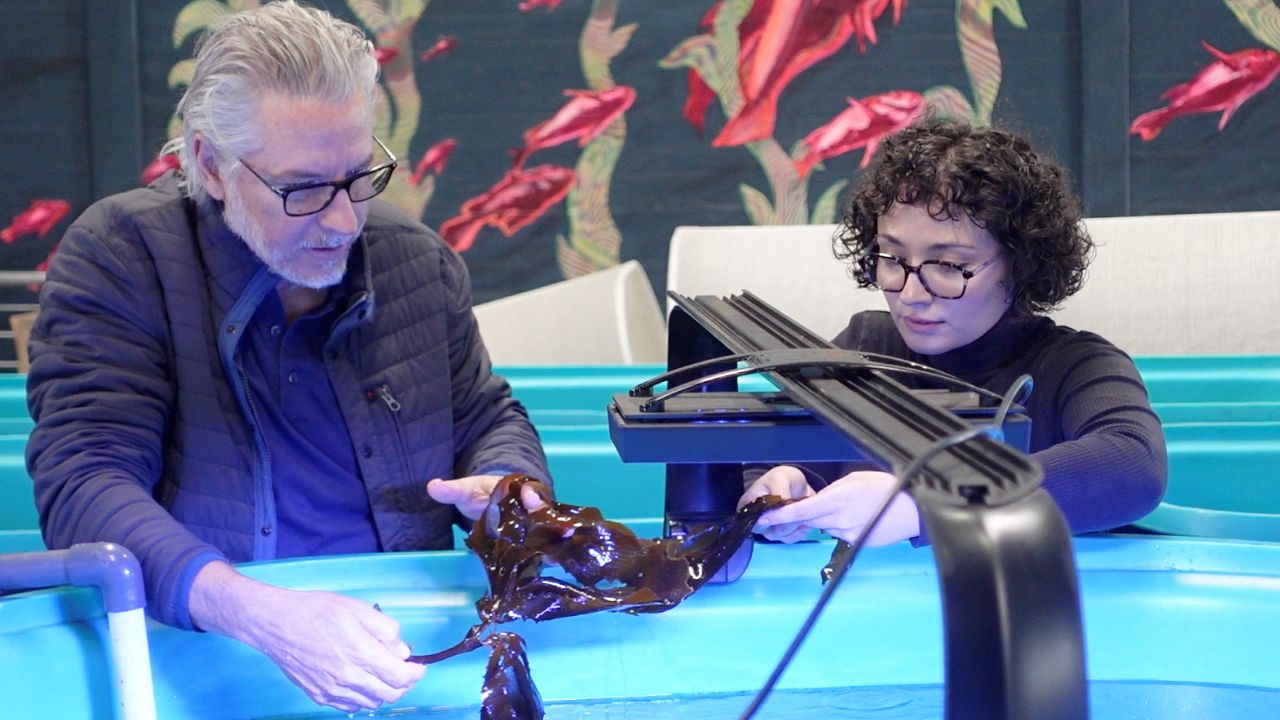SAN DIEGO — College campuses across the U.S. are working together to protect pollinators.
Getting to know the bees in the colonies at the biological field station at the University of California, San Diego, has been the best part of college for Brandi Sanchez. She’s a graduate student in the Nieh Bee Lab, researching the intelligence of honeybees.
“I didn’t know much about bees when I first became a researcher,” Sanchez said. “The more I know about them, the more respect I have for them.”
Sanchez is taking her passion beyond academics. She is part of the group that helped UC San Diego become the first Bee Campus in San Diego County. Bee Campus USA is a national program created by the Xerces Society to boost native plants, reduce pesticide use and support pollinators.
Bee Campus emphasizes education and outreach. Sanchez is co-president of the Pollinator Club at U.C. San Diego. Along with Whitney Haluza, they teach the community about the importance of pollinators for ecosystem health. They hosted a bee hotel workshop, where students built a safe habitat for native bees.
“There’s honeybees and then there’s all these other native bees that we want to protect,” Haluza said.
San Diego County is regarded as a global biodiversity hotspot with more than 600 species of native bees. According to the U.S. Department of Agriculture, one in every three bites of food exists because of pollinators. Haluza says Bee Campus is an important part of getting people to connect with the world we live in.
“Trying to get students more involved with bee conservation, pollinator conservation and hopefully make a lasting impact on their lives where they can share it more with other people,” Haluza said.
Sanchez hopes they can spread their love of bees through the pollinator club and Bee Campus, showing the community the big picture.
“It’s not just fighting for native pollinators, it’s fighting for our future generations and for the people who are alive right now,” Sanchez said.
A decade ago, UC San Diego successfully cut pesticide usage by approximately 80%. Other campuses in Southern California that are also part of the Bee Campus movement are UCLA, UC Riverside, and UC Berkeley.











